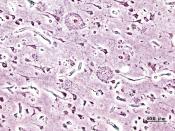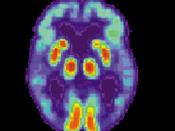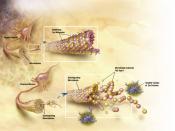Alzheimer's disease is one of several disorders that cause the gradual loss of brain cells. The disease was first described in 1906 by German physician Dr. Alois Alzheimer. Although the disease was once considered rare, research has shown that it is the leading cause of dementia.
Dementia
Dementia is an umbrella term for several symptoms related to a decline in thinking skills. Common symptoms include a gradual loss of memory, problems with reasoning or judgment, disorientation, difficulty in learning, loss of language skills, and decline in the ability to perform routine tasks.
People with dementia also experience changes in their personalities and behavioral problems, such as agitation, anxiety, delusions (believing in a reality that does not exist), and hallucinations (seeing things that do not exist).
Causes and Risk Factors
No one knows yet exactly what causes Alzheimer's disease. Researchers are learning about what happens to the brain as we grow older, what happens to brain cells in Alzheimer's disease, genes associated with Alzheimer's, and many other factors that may be important.
Most researchers agree that the cause may be a complex set of factors.
There are two abnormal structures in the brain associated with Alzheimer's disease. Amyloid plaques are clumps of protein fragments that accumulate outside of cells. Neurofibrillary tangles are clumps of altered proteins inside cells.
Research about these structures have provided clues about why cells die, but scientists have not determined exactly what role plaques and tangles play in the disease process and whether these are the key factors.
Timeline of Events
Stage 1 - NO SYMPTOMS OF ALZHEIMER'S ARE SEEN.
Stage 2 - FORGETFULNESS: Very mild cognitive decline. For example, problems such as: vagueness of where familiar objects are, complaints about not remembering well, forgetting names once well known. There is however, no loss...


